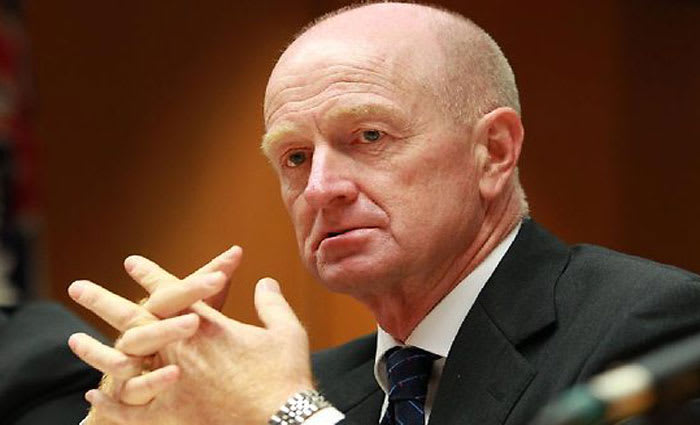Reserve Bank governor Glenn Stevens has conceded that he has "some discomfort' about rising Sydney house prices, but argued that these concerns need to be weighed up against the need to stimulate economic activity across the nation.
He said the Reserve Bank remained confident there was little evidence of a widespread bubble in house prices.
Australia had a new "two speed" economy, with strong growth in states such as NSW, while resource-rich states, such as Western Australia and Queensland, had seen growth rates slump as the mining boom had ended.
Hie final interview with The Australian Financial Review, mentioned some mixed evidence as to the strength of the housing market.
"Prices are probably rising smartly in some areas, but in other areas they're not, and in some cities in the country, they're falling," he said.
"So I think it's a mixed picture. It's not without risk, and it certainly gives me some discomfort, but then we're balancing that against the other obligations we have to pursue."
He said the RBA was tasked "to balance all these things and make a decision that neither completely ignores the financial stability and housing concerns, nor let them completely dictate the decision.
"That's the balance that we've tried to strike".
"Most of the domestic effects of cheap money comes through the household sector. Higher house prices than otherwise, more borrowing than otherwise, wealth effects, lower saving rate, etc."
But he added, "the thing that I've tried to grapple with is – that's where we get the effects, but do we actually want households to engage in a major levering-up from here?
"It's not that what they did before was disastrous – that clearly hasn't been. But from here, how much more do you want?"
"As the facts at the moment are, the credit growth of households is running about 6 percent. Fractionally less if you take account of a build-up in mortgage offsets and so on".
He added, "I don't think you can say this is a terrible risk. If it was 10 percent or 15 percent – that would be a different story".
He noted two speed housing price movements.
"It's probably not that surprising that parts of Sydney are leading the charge, because this economy is leading the country at the present time."
This, he added, is something "which, actually, we needed if we're to manage the transition after the mining boom".
